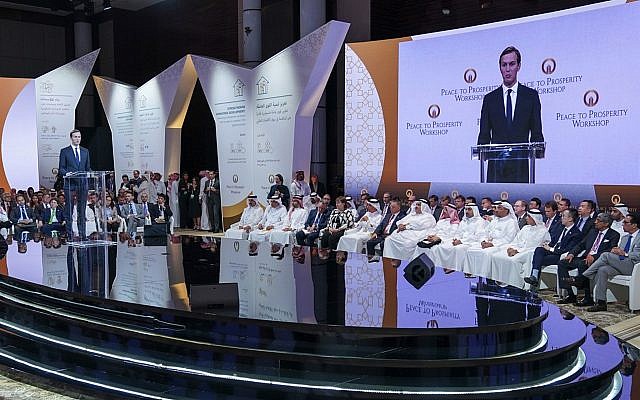
For more than two years the Trump administration heralded their plan for resolving the Palestinian-Israeli conflict. Finally, in front of more than 300 political leaders and observers, White House Senior Advisor Jared Kushner presented a $50 billion “Peace to Prosperity Plan;” however, with Israeli and Palestinian political officials absent. To date, no money was pledged for infrastructure investments and other economy building and no political horizon was provided for any of the five major final status issues: refugees, Jerusalem, settlements, security and borders. Rather than present small incremental steps toward reducing tensions between the sides, the economic plan was viewed as an unachievable master plan. The unanswered question remained: could parties not directly engaged in the conflict have a solution to their differences formulated without their participation or endorsement? Previous Arab-Israeli successes always hinged on strong political leaders with courage, making trade-offs, and looking over the horizon for the betterment of their own populations. No Arab-Israeli political agreements ever succeed when the mediator wanted a result more than the respective sides. The Trump Plan seemed to be giving gas in neutral.
